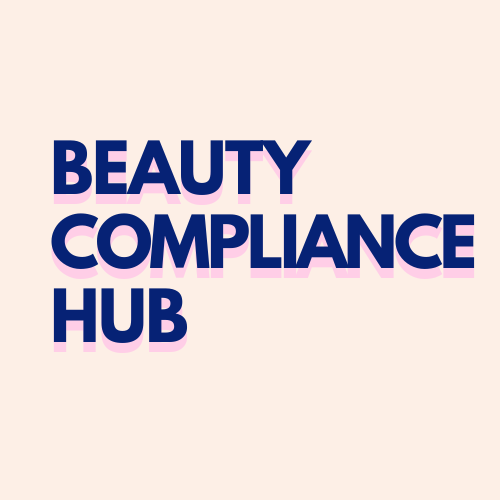Low SKU, BIG impact!
Less is Luxe: How Emerging Beauty Brands Can Win Big with a Low SKU Strategy
In the saturated and ever-evolving global cosmetic industry, launching with an expansive product line is no longer the only way to make a splash. In fact, some of the most disruptive and successful emerging beauty brands have done the exact opposite—they've focused on fewer, hero products and built cult-like followings with just a handful of SKUs.
From Rhode Skin by Hailey Bieber to Gisou Hair by Negin Mirsalehi, the “less is more” approach is redefining what it means to be a powerhouse brand. If you're an indie or emerging beauty founder, this article will show you exactly why a low SKU strategy might be your secret weapon for market entry, global growth, and longevity.
💡 What is a Low SKU Strategy?
A low SKU (Stock Keeping Unit) strategy involves launching with a minimal number of products, often under 10, focusing on quality, differentiation, and storytelling rather than volume. The goal? Develop strong customer trust and brand loyalty through signature products, while staying lean and agile in operations.
🌍 Why This Works Globally—Even in Competitive Markets
The modern beauty consumer is intentional, research-driven, and aesthetically selective. Whether you're launching in the UK, Middle East, Asia, or the US, today’s buyer is bombarded by choice. Instead of contributing to the noise, low SKU brands offer clarity, simplicity, and confidence in their products.
🌟 Real-World Case Studies: Brands Winning with Low SKUs
1. Rhode Skin
Initial Launch SKU count: 3
Hero products: Peptide Glazing Fluid, Barrier Restore Cream, Lip Treatment
Growth: Achieved millions in sales in the first year, built a global waitlist
Success factors: Celebrity credibility, minimalist aesthetic, Billon dollar acquisition by Elf Cosmetics.
2. Gisou Hair
Initial Launch SKU count: 1-2 (famous Honey Infused Hair Oil)
Growth: From a blog passion project to a globally recognized brand stocked in Sephora and Selfridges
Success factors: Founder’s authenticity, clean ingredients, powerful story (family-owned beekeeping heritage), unique sensorial product appeal
3. Summer Fridays
Initial Launch SKU count: 1 (Jet Lag Mask)
Growth: Expanded slowly, one hit product at a time
Success factors: “Instagrammable” packaging, clean credentials, genuine founder engagement
🚀 Key Advantages of a Low SKU Strategy
✅ Faster Product Development
With fewer formulas to test, regulate, and launch, brands can go to market faster, especially crucial in trend-driven categories like skincare and makeup.
✅ Lower Initial Investment
Minimised SKUs = lower production, warehousing, and regulatory costs, making it ideal for indie founders or bootstrap businesses.
✅ Stronger Product Identity
A limited range means more attention on each product. Consumers associate the brand with signature formulas that drive repeat purchases and viral hype.
✅ Simplified Compliance and Expansion
For global growth, it’s easier to test a few products across different markets (e.g., GCC, Asia, EU) and tweak accordingly especially with complex regional regulatory standards.
✅ Brand Storytelling & Focused Marketing
With fewer products, the brand’s messaging can be clearer. You build a movement, not just a product line.
📈 Growth Factors That Scale a Low-SKU Brand
Hero Product Marketing
Use education, tutorials, and real testimonials to make your hero product unforgettable.Community-Building
Create a niche community that feels like they discovered a secret gem (like early Glossier fans or Rhode stans).Seasonal & Limited Drops
Once trust is built, limited edition or seasonal SKUs can create buzz and urgency.Retail Expansion with Precision
Leverage strong DTC sales to get into top retailers—Sephora, Boots, Space NK, Cult Beauty—without overextending your range.Global Localisation
Adapt a single product's packaging or formula slightly to meet regional compliance (e.g. SPF in UAE vs EU vs Japan), rather than creating new lines.
🧪 Low SKU Doesn’t Mean Low Innovation
In fact, some of the most innovative ingredient stories and formulations have come from brands with just 2-3 products. The focus allows them to test thoroughly, use high-quality actives, and create formulas that truly deliver a strategy that’s easier to manage across regulatory markets like the EU, Middle East, and APAC.
🛠️ Ready to Build a Low-SKU Brand?
If you’re an indie founder considering this strategy, remember:
Your product must solve a real need or deliver visible results
Packaging, messaging, and formulation must be exceptional and cohesive
Keep your brand DNA consistent across all launches
Use compliance experts to ensure smooth market expansion from day one
💼 Final Thoughts
The global beauty market no longer rewards brands for having the most products, it rewards those who offer the right product at the right time with the right story. Whether you’re just getting started or looking to refine your strategy, a low SKU model might be the high-impact, high-loyalty path your brand needs.
👉 Need Help Launching Your Hero Product?
We help indie beauty brands develop, formulate, and globally register standout products with simplicity and confidence. Whether you're launching in the UK, GCC, Asia, or the US, we make beauty compliance and innovation seamless.
Let’s create your hero product!
📩 Contact us now or Browse our Site







